|
1. Have Trust in the Lord: In every situation, Pallotti sought the will of God. Any difficult situation should not discourage us to doubt the goodness of God. That is why when Count Antonio Maria Plebani (who was staying in the region of Marche), wrote with a heavy heart about the safety of his son who was studying in Rome, Pallotti responded saying: “Let us seek God. Let us seek Him always and in all the things. And we will find Him and in Him we will all be saved.” It was the time of the cholera epidemic. The suffering was visible for everyone to see. People - the saints and the ordinary, the churchmen and the lay people – died in large numbers. Pallotti’s close acquaintances – his father, his confessor, his friends, and associates - died during the epidemic. Pallotti did not lose heart or faith. He held himself like a strong tree with a firm foundation that fails to bow down to the strong wind of suffering. The situation is not different today. There is suffering everywhere. The invisible virus seems to be all-powerful. People, even people we know, suffer and die. We especially remember our confrere Fr. Alberto Fernandez Merayo, SAC (Heart of Jesus Province) who died of the deadly Coronavirus on April 7th, 2020. Some of our members in Poland (Oltarzew) have tested positive for the virus. These incidents can shake the foundations of our faith. God seems to be silent or absent. Our prayers seem to fall on deaf ears. It is the same for lay people. People look for God and they cannot seem to find Him! When they seek answers from us, the clergy, it is difficult to try and have answers for them. In spite of everything, it is very necessary that we, especially the priests and religious, stand as solid believers believing in the goodness of the Lord. In the time of Pallotti, there was the exemplary Pope Gregory XVI. Today we have Pope Francis doing the same. He sends out the message of a pastor who is truly concerned for the faithful and who continues to battle for them with his prayers. His actions have indeed strengthened the Catholic faithful all over the world. A man of God standing firm in faith—even in the most difficult times—is the most powerful symbol. Pallotti was one such symbol for the people who sought his advice in the most difficult times of the cholera epidemic. 2. ‘Do your Duties’: Our first necessary act is to be faithful and to stand firm in our beliefs. Faith alone does not suffice. “Faith without works is dead” writes the Apostle James (Jas 2:14-17). In a letter written to Giovanni Merchetti, a married lay person and a collaborator of Pallotti, we find the following advice: “it is better to attend to one’s proper duties [in the time of the epidemic].” Pallotti seems to be a believer in the battle cry: ‘Stop whining. Start working.’ Every person is supposed to do his or her duty in all situations, especially in the difficult times. The fear of sickness can limit us with inaction. Life under lockdown can also eventually result in lethargy. However, we should not allow our spirit to be burdened. Life under lockdown amidst the sickness should not be an excuse. We are supposed to be doing our duties to the best of our ability with the limits in place. In this regard, some great examples in these times are medical doctors, selfless nurses, the numerous pharmacists, generous healthcare workers, the committed members of the staff in hospitals, the police force, the proprietors of various shops selling the necessary food, the unknown truck drivers, the service minded priests and the other Church personnel. They were acknowledged by our beloved Pope Francis when he delivered the extraordinary blessings ‘To the City and to the World’ (Urbi et Orbi) on March 27th, 2020. The world will move on and there will be hope if everyone does his or her duty. Pallotti was very much aware of this simple but a significant fact. Because of Pallotti’s hope, one of his advices for the time of epidemic was ‘to do one’s duties.’ 3. Acts of Mercy: The next area in which Pallotti directed his actions in difficult times like the cholera epidemic was to be sensitive to the needs of his neighbors. To be charitable is good, and to be charitable in the time of epidemic is better. It is best when the beneficiary can in no way repay you. Pallotti was an exemplary figure in that sense. He engaged both in the Spiritual and Corporal Works of Mercy. Spiritual Works of Mercy: As the epidemic was ravaging Rome and wreaking havoc on the physical and spiritual lives of people, Pallotti wasted no opportunity to restore and strengthen the faith of the people. To the people who sought his counsel, he reassured them that God was still in control. It was praiseworthy that people sought the will of God in everything, including in the rough times of the epidemic. To the Apostolic Secretary in Vienna, who was very anxious for his life, Pallotti assured him that he would come out of the scourge untouched. Later, when he was proved right, Pallotti wrote to the secretary to ask for pardon and forgiveness from the Lord for the moments he was doubtful and weak in his faith. That was Pallotti’s way of counseling the doubtful and strengthening the feeble minded. The people who received the instructions of Pallotti were struck by the certainty with which he pronounced his teachings. Pallotti was also on the forefront of praying for the suffering people. When the Church organized a novena in honor of Our Lady and when it decided on a barefoot procession with the icon of the Madonna Salus Populi Romani, Pallotti plunged himself completely into prayerful ministries. For instance, Pallotti organized a Triduum in the Church of the Holy Spirit of the Neapolitans with a special intention to procure the necessary graces for the people infected with cholera. On another occasion, for the votive procession organized by the Church, Pallotti tried to get as many clergy as possible to participate in the procession. That was Pallotti’s service through prayer. Pallotti also spent a lot of time in the confessional hearing the sins of the faithful, and he encouraged his fellow clergy to do the same. In the extraordinary time of the epidemic, Pallotti requested the ministerial faculties for reserved sins for his collaborators (Frs. Melia and Michettoni). That was the comforting ministry of Pallotti in the time of the epidemic. Corporal Acts of Mercy: Pallotti also had the foresight to know that the spread of the epidemic would cause many people to lose their jobs and cause financial stress on many families paying for necessities and medical expenses. This would eventually result in a great increase in the number of the poor. Pallotti had an innovative idea to help such people in need. He placed a small box in the Church of the Holy Spirit of the Neapolitans (where Pallotti was the Rector). It was a box in which people in need could drop a piece of paper with their names, surnames, the place of their residence, their parish and their particular pressing need. Later the members of the Union were sent two by two with the relief materials to the homes of the people in need. Even before the arrival of the epidemic in Rome, when cholera was already present in the port city of Naples, Pallotti had sent bread to the affected people there. Thus, we learn that Pallotti fed the hungry when they most needed food. Besides carrying food for the needy, Pallotti and the members of the Union also attended to their other needs. They carried clothing to whoever lacked and asked for it (clothing the naked). They distributed lemons, which were thought to be a powerful medicine against the cholera outbreak, to the sickly. Pallotti asked his collaborators to assist the sick in their suffering. Additionally, Pallotti was seen on many occasions walking behind a hearse for the dead with his surplice and stole (burying the dead). Today, we are called to emulate the example of St. Vincent Pallotti. If an act of charity is possible, it should be done. Everyone is called to respond to the call of charity. There is no excuse for anyone. If a person is old or sick in bed, he or she can certainly pray for all of suffering humanity and they can offer his or her suffering as mortification for the world’s sins. If a person is young and active, he or she should participate in as many of the works of mercy as possible. A priest can very well say votive masses for the end of the epidemic. A religious or lay associate can dedicate him or herself to pray for the sick and the suffering and for the medical professionals who fight the deadly virus. The priests and religious are to stay with the flock -- if and when possible, they should be easily available to assist the sick and the dying. Fr. Giuseppe Berardelli (72), a priest from the Diocese of Bergamo, is a great example of Christian service and witness. He gave up his ventilator so that a young patient could recover. Many other priests and religious have served the sick and the dying and eventually fell victim to the virus. The Church and its dedicated personnel have been at the forefront caring for the needs of the people. If Pallotti were alive, he would be walking around in the hospital wards with the necessary protective equipment assisting the sick and the dying. He also would have encouraged the members of the Union to do the same. If such action is not possible (owing to the nature of the disease and the lack of enough Personal Protective Equipment), the other acts of mercy (corporal acts of mercy) are very much feasible. There are hungry people and abandoned families around us. We need to have compassionate eyes to look at them and listen to their needs to then do what is possible. Some might need immediate nourishment; some might require medicine; some might ask for another form of help. We need to look around and recognize people’s needs and respond. Pallotti responded. As his followers, we need to walk the same path. As a summation, I would say that if St. Vincent Pallotti were alive today, seeing the ravages of the current pandemic, his exhortation for his followers would have been something in the line of the following: “Do not worry. Pray and have trust in the Lord. Do your duties. And do not forget the acts of mercy.” To learn more about St. Vincent Pallotti, please click here. For more resources on the COVID-19 pandemic, please click here.
0 Comments
“Seek God and you will find God. Seek God in all things and you will find God in all things. Seek God always and you will find God always.” – St. Vincent Pallotti
Today is the 225th anniversary of the birth of St. Vincent Pallotti. In the first twenty years of his life, he experienced a pope run out of Rome by revolutionaries who died in exile and another taken from Rome and held in France by Napoleon. When that pope, Pius VII, returned in 1815, Pallotti was 20 years old and three years away from his ordination to the priesthood. He saw people who were baptized throw off their faith and take up revolution. He witnessed clergy and religious who needed renewal. Twenty years later, in 1835, he founded the Union of Catholic Apostolate, an association of lay people, religious and clergy in order to assist in the Church’s missionary efforts, revive the faith of Catholics, and enkindle charity in the hearts of all. Amid a cholera pandemic that hit Rome in 1837, he worked tirelessly along with the small and new community of priests and brothers, as well as lay people, to care for the suffering and the dying, both spiritually and physically. In the aftermath of that pandemic, which left many orphans, St. Vincent Pallotti founded through the Union of Catholic Apostolate the House of Charity in Rome in 1838. This orphanage for girls is still in operation today and is the birthplace of the Pallottine Sisters. St. Vincent Pallotti evangelized in the streets, cared for the poor, taught and provided spiritual direction to seminarians, clergy, and religious, served in prisons and hospitals, was confessor to the poor and popes, aided the Church’s work in the missions, including the United States, and fostered what today we would call collaboration and co-responsibility among Catholics so that they would live as apostles of Jesus Christ. He was also a mystic who experienced God as Infinite Love and Mercy. It was this experience of God that sent him forth, urged on by Christ’s charity or love (2 Cor. 5:14). Even seeing a third pope and long-time friend, Bl. Pius IX, flee Rome due to revolution in 1848, St. Vincent Pallotti still worked tirelessly until his death in 1850 in the hope that all would come to full life in Christ. His great project of the Union of Catholic Apostolate did not grow large in his lifetime. Today, though, thousands of his spiritual sons and daughters of the Union of Catholic Apostolate—which also includes the Pallottine Fathers, Brothers, and Sisters—continues his work in 56 countries around the world. Pallotti was canonized by St. John XXIII in 1963, just over a month after the close of the first session of the Second Vatican Council—an appropriate time given the Council’s teaching that all are called to holiness and to live as apostles of Jesus Christ. Blessings to all on the birthday of St. Vincent Pallotti! May the Charity of Christ urge us on! The opening of today’s reading from the Gospel of John depicts Mary Magdalene on the cusp of an encounter with the Risen Christ. “But Mary stayed outside the tomb weeping. And as she wept, she bent over into the tomb and saw two angels in white.” In this moment of bending down and looking into the tomb she thought was empty, Mary provides an everlasting model for those of us seeking the Risen Christ throughout Easter and throughout our lives. Where Jesus’ tomb had been a place of death, it is now a place of resurrection. Where Mary’s tears had symbolized her grief, they now contain her joy. This amazing moment came on a morning when Mary was vulnerable and traumatized. I cannot imagine what Mary must have been feeling there, alone – but I can only guess that seeing Jesus alive again would have been the last thing on her mind. When I feel vulnerable, my world feels very small. In grief and pain, it is difficult to “think outside the box” or to think about the “big picture.” In fact, it is difficult to think at all. Many of us are living now from this place of smallness in the light of the coronavirus pandemic. We are currently facing dangers that have fundamentally altered the patterns of our Church life and our society – along with many other woes that can cause us to despair. The Good News is that none of the woes of the world can separate us from God’s love. As Jesus told the disciples, “I will see you again, and your hearts will rejoice, and no one will take your joy away from you.” (John 16:22) I hope that this Easter week brings you such joy. And if you still have grief, I invite you to trust that it’s okay, and that God can work within that grief. We can take courage from the example of Mary Magdalene, whose own tears opened the portal between life and death. From Mary’s story and from my own story, I have faith that God can work directly within our sorrow – opening new possibilities when we had thought all the doors closed. I believe this is where God is most fully present in our lives – in the spaces where we feel lost, abandoned, and confused. In this way, I am hopeful that this Easter season will help all of us to encounter Christ in truly new and unimagined ways. For more Easter resources, please click here. “According to a 2018 national survey by Cigna, loneliness levels have reached an all-time high, with nearly half of 20,000 U.S. adults reporting they sometimes or always feel alone. Forty percent of survey participants also reported they sometimes or always feel that their relationships are not meaningful and that they feel isolated.” – American Psychological Association. This is a report from 2019 about the rising levels of social isolation and loneliness experienced in the United States. It is not something new, and as days and years progress, it is likely to get worse if we do not act now. So how does the Catholic Church respond to such increasing levels of isolation? Fortunately, the Church has discussed accompaniment as a solution for a very long time. Most recently, it has been discussed at great length throughout the papacy of Pope Francis and in the recent synod on Young People, the Faith, and Vocational Discernment. As recently as last year, Pope Francis in Christus Vivit talked extensively about the Church’s role in preventing loneliness in young people. Still, as the study above shows, loneliness is not something that only young people experience. Pope Francis talks about the untethering and uprootedness of people in this way: “We need to make all our institutions better equipped to be more welcoming to young people since so many have a real sense of being orphaned. … To all these orphans – including perhaps ourselves – communities like a parish or school should offer possibilities for experiencing openness and love, affirmation, and growth. Many young people today feel that they have inherited the failed dreams of their parents and grandparents, dreams betrayed by injustice, social violence, selfishness, and lack of concern for others. In a word, they feel uprooted.…The experience of discontinuity, uprootedness, and the collapse of fundamental certainties, fostered by today’s media culture, creates a deep sense of orphanhood to which we must respond by creating an attractive and fraternal environment where others can live with a sense of purpose.” (Christus Vivit 216) So what does this mean for our parishes or for us as Catholics? Each one of us is called to accompany others on the journey of faith. Christ himself modeled this with his disciples and has charged us to do the same. Accompaniment is fundamental to Christianity. It means building an “intentional relationship that is oriented toward a definitive direction of growth in holiness and transformation in the Person of Christ.” To begin, I would suggest first taking a look at your immediate circle of connections. Family, friends, co-workers, neighbors, etc. should be your first group to encounter and accompany because they are the people you organically have relationships with each day. These are the people most likely to open up to you if they are experiencing troubles. Even then, it is essential to listen and provide a connection to Christ and the Church community. The role of accompaniment in giving someone a link to the broader Catholic community is vital, and acknowledging every baptized person’s role in this calling is essential. As the Art of Accompaniment: Theological, Spiritual, and Practical Elements of Building a More Relational Church discusses, accompaniment can serve as a powerful avenue to welcome and keep someone in the Church in ever uncertain times and events in someone’s life. It can lead to a deeper connection to Christ, a fuller integration into the world at large, and a more authentic sense of their mission to serve Christ and the Church (Art of Accompaniment, 19). Every day there are more and more people who are experiencing isolation, loneliness, and a sense of not belonging. This has only been exacerbated by the current coronavirus pandemic. Current events, personal circumstances such as their health, and many other factors can contribute to feelings of isolation. During this time, I invite you to pray about different ways you can accompany those who are feeling lonely. The Catholic Church can be a refuge in this storm of isolation and meet people where they are. Even if someone is lonely, as one of God’s children, they are never alone, and it is our job as Catholics to remind them of that fact. For more resources on accompaniment, please click here. For more resources to accompany you during the coronavirus, please click here. This current COVID-19 crisis has shaken up the end of the semester even more than most students could have even imagined. Since my university went online through the rest of the semester, so much has changed: events and programs that were being planned since last school year have been canceled; fun outdoor adventures with the onset of spring are postponed; classes have transitioned to completely online settings. The way I would best sum up this time is unexpected significant change. But this change can lead to many ways of unexpected growth while adjusting to this new normal for the foreseeable future.
These couple of weeks adjusting to the world of online classes has allowed me to take some time and reflect on the past, present, and future. In college, time seems to fly and changes that occur over time sometimes just seem to pop up. Yet in these weeks of change, time hasn’t been flying by, and things aren’t happening as smoothly, but that’s okay – it’s perfectly fine if adjusting to this new normal takes longer than it may have at college. In my reflecting, a few thoughts stuck with me as particularly helpful in this unexpected journey:
From the time this COVID-19 pandemic first began to alter life in February, one particular prayer has been an unending source of peace for me. It is called the Serenity Prayer: “God, grant me the serenity to accept the things I cannot change, the courage to change the things I can, and the wisdom to know the difference.” Jonathan Harrison is a Program Associate for the Catholic Apostolate Center and a student at The Catholic University of America studying biochemistry and theology with a certificate in pastoral ministry. Can you believe we are already in the fifth week of Lent? Personally, this year’s Lenten season has flown by for me. While I have not always held fast to the Lenten observances I chose for myself, I can already see the fruits of the changes I have been able to maintain. This year for Lent, I have begun working my way through the Bible using a program which breaks the Scriptures into easily-digestible daily segments from both the Old and New Testaments. Most of what I’ve read from the Old Testament so far has been very familiar to me—stories from creation to the great flood and Abraham and his successors. But what has struck me, as I’ve slowly progressed through the books of Genesis and Exodus, is the lack of trust that has plagued the human race since its creation. Reading these Bible passages has often left me pondering why mankind struggles so much to trust God. Adam and Eve fell for the serpent’s lies about the forbidden fruit instead of trusting that God knew what was good and appropriate for them; Abraham tried to jumpstart his promised line of innumerable progeny by having a child with his wife’s servant because his wife was supposedly incapable of bearing any children. Today’s first reading, from the Book of Numbers, continues these themes of distrust. “With their patience worn out by the journey,” the Israelites complain that they were rescued from slavery only to be left to die in the miserable desert, and that even the food the Lord has provided them is disgusting and wretched. I have found these particular stories from the Old Testament striking because they ring true for my own life; when I find myself in a difficult situation over which I have no control, I don’t always maintain my trust in God. I feel helpless because there is nothing I can do to change things, or I cannot fathom why things are unraveling in the way that they are. And, like hundreds of generations of the human race before me, I turn to the world first for answers instead of coming immediately to God. I usually end up complaining, and often times I prefer to question why He is treating me this way and do not trust that there is some good to come out of it that I cannot yet, and may not ever, see. In fact, I think this may be the heart of mankind’s trust issues: one of the hardest things for us to do is to have faith in God when we cannot see the whole picture, or do not understand what is going on, or cannot understand what God could possibly mean by calling us in the way that He does. But we do not need to see the whole picture in order to be faithful followers of Christ. We do not need to control the situation in order to get what God promised us. We can use our times of suffering, or times of feeling excluded from God’s plan, to bring ourselves closer to God. Instead of asking God why He has not done more for us, like the Israelites did in the desert, we can ask Him to show us what good our suffering could bring. And instead of trying to put ourselves on a more equal footing with God, like Adam and Eve or Abraham and Sarah did, we can ask God how best we can serve Him. Today, as we continue to navigate the incredibly difficult situations around us caused by the coronavirus, let us place our trust in God once more and turn to him in our time of need. I pray that this may be a fruitful time of growth in your relationship with God and that we may emerge from this time stronger in our faith, hope, and love. For more resources to accompany you during this time, please visit our Coronavirus Resource page. On March 7, my husband threw a surprise party to celebrate my 30th birthday. That would be the last time I would physically spend with many dear friends for at least a month. It was at the beginning stages of the coronavirus pandemic when the United States seemed to just barely be grasping what was going on across the Atlantic. We were aware but unafraid. The virus was like the flu. It only affected the elderly and those with compromised immune systems. It wasn’t a big deal. We would be fine. But around that time, my family began to take the notions of staying home, social distancing, and self-quarantining seriously. Each day brought more news. So we spent time outside. We tried to stay 6 ft apart. We bought a few more groceries than usual. We began to lay low. Almost three weeks later, I write from home, having gone “out” less times than I can count on my fingers apart from family walks, romps to open fields, or our backyard. No grocery stores. No movie theaters. No social events. No playgrounds. No libraries. No stores. No Masses. I haven’t had to “try” to make Lent this year somber or serious. Every day is a fast from something I deemed important to my life: a fast from physical friendship; a fast from community in the way I’m used to living it; a fast from outings, from the sheer independence of being able to step out of my house and go where I want to go when I want to. This fasting has been humbling. Prayer is the rhythm to my day. It is the breath of my days. The heartbeat. I watch online daily Masses or reflections on the Scriptures. I pray the rosary by myself or with my husband and children. I sing the Divine Mercy chaplet. I continue a novena. I make a spiritual communion with tears in my eyes. I utter supplications for others throughout the day. I offer my fasts—both the voluntary and involuntary—for our world. At the beginning of this Lenten journey, I shared how I thirsted to emerge from spiritual mediocrity. Now I thirst for God himself. I yearn to join the Body of Christ once again in the sacraments and receive him at the Eucharistic table. I live Paul’s exhortation to pray without ceasing in a profound way. And yet God has been so good. And peace prevails in my heart. I have so much to be thankful for: continued jobs and paychecks, long days of sunshine and warm weather, our health, food on our plates, a roof over our heads, snuggles with my children, reading books in our indoor tent, video calls with friends and family all over the country. In spite of everything, we are together. In spite of everything, God is here. In spite of everything, there is always hope. Let us continue to “rend our hearts” this Lent by turning to God and giving him everything we are feeling right now: exhaustion, confusion, anxiety, disillusionment, anger, despair, or fear. We can approach the one who became a vulnerable child for us and give him our own insecurities and vulnerabilities. At the manger, we will be met with his never-ending love. In his homily for the fourth Sunday of Lent, Fr. Mike Schmitz noted that God did not make an unbreakable world. Though he created perfectly, he instilled in mankind the ability to have free will—the ability to break our relationship with God by introducing sin into the human condition. Death, pain, suffering, temptation—all is the result of sin. This pandemic is more evidence of this truth. What matters, however, in the midst of our suffering, is that God does not abandon us to it—nor has he ever. Scripture recounts the story of God’s unfailing love for humanity since the Fall—a story of salvation that continues personally with each of us today. God does not promise fulfillment on earth, perfect joy, blessing, and comfort. He promises the cross, daily. But he also promises us that he will be with us always—even to the end of time—that he came to give life in abundance, that we can be transfigured, and that there is resurrection. He invites us to complete satisfaction and joy with him in Heaven for eternity. And in the meantime, as we continue on our own personal journeys in this “vale of tears,” he remains waiting for us at the well. Inviting us on the shore. Looking for our return on the horizon. Feeding us at the table. He remains pouring out all for us on the Cross. He remains. As we continue to navigate this Lenten season, the coronavirus pandemic, and the approach of Easter, let us go to him with humble hearts. “Let us allow ourselves to be loved, so that we can give love in return. Let us allow ourselves to stand up and walk towards Easter. Then we will experience the joy of discovering how God raises us up from our ashes.” -Pope Francis (Ash Wednesday Homily, 2020) As a human race, we have entered uncharted waters and new territory as we struggle to continue our lives in the midst of the coronavirus pandemic. Many of us have attended to socially distancing ourselves, picking up essential items from the grocery store, and ensuring that our loved ones are safe and supported. As Catholics, we’ve found creative ways to gather to celebrate Mass and pray with others all over the nation and the world. However, in the midst of giving attention to all of these demands, we might forget to take care of one crucial thing in particular: our mental health. As someone who lives with anxiety, depression, and other mental health issues, I can confirm that the presence of coronavirus and the changes it has wrought in my daily life are making it particularly challenging to cope. I find myself with racing thoughts: When will this be over? Will my loved ones and I be protected? How much will this affect my finances? Where even is God in this? This is why I am particularly invested in my mental health right now: the challenges of the pandemic have the potential to trap me in an endless state of anxiety, panic, and depression. Although the pandemic presents me with challenging days ahead, I know that I can survive them by taking extra care of my mental health. To take a step back, why should mental health matter to us so much as Christians, especially now? First, mental health allows us to live in right relationship with ourselves, others, and God. By cultivating mental health, we can strengthen self-esteem, learn how to be a more compassionate friend or partner, or learn how our human experiences have affected our relationship with God. Second, focusing on our mental health allows us to be stewards of God’s creation, specifically good stewards of the body that God has created and given to us. Though we are living in a time of panic and uncertainty, we have agency and the ability to take care of ourselves in a way that allows us to continue the hard work of bringing forth the Kingdom of God, even in a pandemic. Third, focusing our efforts on our mental health is bound up in our pursuit of holiness. As we focus on mental health, we grow in self-awareness, communication, compassion, and moral judgement; in other words, we engage in formation that allows us to be a “bridge and not an obstacle” (Pastores Dabo Vobis, 43) to Jesus Christ in our own lives and the lives of others. In other words, intentionally focusing on our mental health during this challenging time is a way in which we can follow the command to “love the LORD, your God, with your whole heart, and with your whole being, and with your whole strength” (Deuteronomy 6:5). In being intentional about my own mental health at this time, here are some thoughts and practices that I’ve found most helpful in coping with uncertainty, panic, anxiety, and depression:
How can you engage in practices that cultivate your self-awareness this week? What/who are valuable resources of support? How do you feel that you need to show up for yourself this week? Where could you use some extra self-compassion in your life? Finally, how might being intentional about cultivating your mental health bring you into right relationship with yourself, others, and God during this time?
“And a sword will pierce through your own soul also.” -- Luke 2:35 I have a tradition of watching Mel Gibson’s The Passion of the Christ every year, usually on Good Friday. However, this year I decided to watch it on Ash Wednesday to prepare me for Lent. Every time I watch it, something new stands out to me. This year, I noticed with particular clarity how Mary follows Jesus throughout every step of His Passion and, more specifically, the effect it has on Our Lord. Whether it be His arrest, scourging, or His walk towards Calvary, every time He locked eyes with Mary, His energy was replenished and His courage renewed. Granted, this is from a film, but it isn’t that difficult to imagine. The love that Christ had for His mother is beyond anything we can conceptualize. I’ve always found this—and her—to be somewhat mysterious and always a little bit beyond my reach of understanding. But I think reflecting on her title of “Our Lady of Sorrows” can encourage us to suffer well, especially during this Lenten season. Mary, perfectly united with the will of her Son, was always completely open to His grace and His love. Along with this perfect unity, however, came the most intense and acute suffering ever suffered after Christ Himself. It is said by many saints, including St. Ephrem, St. Ambrose, St. Bridget of Sweden, and St. Alphonsus Liguori, that Mary suffered an interior, emotional crucifixion during the Passion of her son. Additionally, due to her sinless nature, the intensity of her suffering during Christ’s Passion was beyond anything we can imagine. St. Bernardine of Siena once said, “the grief of Mary was so great that, were it divided amongst all men, it would suffice to cause their immediate death.” This suffering of Our Lady of Sorrows, so beautifully depicted in the film, is ironically comforting. Mary is the ultimate example of not only how to suffer, but also how it can glorify God if fully embraced. She shows us that even through our suffering we can fulfill the will of God. One can argue that much of her life—beginning with the prophecy of Simeon and continuing through the laying of Christ in the tomb—was lived in some degree of suffering, especially knowing what would befall her Son. But because she was completely devoted to the fulfillment of the will of God, her suffering was redeemed in and through the glory of the resurrection of Christ. The film depiction of Christ looking to His mother is also something we can learn from this Lent. Mary can be a source of strength and encouragement as we continue to do works of prayer, fasting, and almsgiving throughout these forty days. Mary suffered quietly and faithfully. She stood with her Son at the cross until the end, knowing in faith that his Passion and death would fulfill God’s plan and bring salvation to mankind. What can we take from this? Our Lady of Sorrows shows us that suffering well--that is, directed in union with God’s will-- can glorify Him and help us along the path to our salvation. This Lent, as I meditate on her walk with Christ toward Calvary, I am refreshed in the knowledge that our suffering doesn’t need to have a bitter end. If unified with Christ it can, and will, be redeemed in and through Him in eternal life. How can we make our walk through the desert and toward Calvary this Lent look more like Mary’s? As I write this, there are currently 2,382 people in my home state of New York who have contracted the Coronavirus, with 21 others having lost their lives in the pandemic. With both of those numbers climbing each day, the feelings of anxiety, helplessness, and despair are palpable— not just in New York, but around the world. Here in New York, I am currently a seminarian on pastoral year (a year-long internship at a parish in my diocese). In an exercise of charity and concern, our diocese like many others has cancelled all Masses, public liturgies, devotions, and meetings through Easter in order to keep our most vulnerable parishioners safe. This has of course posed a certain ministerial crisis since many of the avenues (Mass, confession, one-on-one meetings) that we have been taught to send people down when feeling anxious, despondent, and isolated from God are now closed indefinitely. So, what do we do? This situation is calling us to be creative in how we minister to people. Online resources, social media, live-streaming liturgies, and even just phone calls and video chats can and will keep people feeling connected. I think many of us already know this and have been putting effort into these new ministries and forms of evangelization even before the pandemic. It is true though that without sacraments and personal connection, even this media approach could never be enough. While creative ministry right now is important, I would like to focus rather on the flip side of that same question—what do we do? Here, I would like to address my brother seminarians and anyone, priest and lay alike, that is struggling due to a lack of fulfilling ministry. I don’t think this is a selfish pursuit, but an essential one if we are to check our own feelings of anxiety, helplessness, and despair. Last summer I had the great experience of attending the Institute for Priestly Formation (IPF). In these last few days, one of their spiritual approaches came back to me vividly; they called it Relationship-Identity-Mission—and here the order of the words does matter. IPF posited that many people in ministry may operate backwards. Mission is primary; from there flows Identity (I am a seminarian. I am a youth minister); then, the personal Relationship with Christ gets whatever energy is left. If these last few days without “real ministry” have been a struggle for you, as they have been for me, I think we need to ask ourselves not “what do I do?”—because frankly we cannot do much of anything our Mission truly requires—but rather ask “who am I? I work for Jesus, yes, but is my own, personal relationship with Him primary?” In discussing Relationship-Identity-Mission, the question was often asked “where do you live?” If you live in your Mission and your Identity is synonymous with what you do, you are going to have a difficult month (or maybe even longer). But if you live in the Relationship and make that your starting point, even during a time when the Mission is unclear or nonexistent, then you are going to rediscover your Identity as a beloved son or daughter of a faithful God. Amidst fear and uncertainty, God is giving us this time to go deeper into a relationship with Him, so that we can live out our missions more fruitfully when this is all over. So, if you find you are struggling now because you are living Mission-Identity- Relationship, take his time as a Lenten Retreat and don’t feel bad about it! The world needs your prayers now more than ever, and your creative approach to ministry now will then be the fruit of your time alone with Jesus. If you are living Relationship-Identity-Mission, go deeper and speak honestly with Jesus about frustrations with your minimized Mission. In closing, I would like to offer this consoling quote from Henri Nouwen for your reflection: “We are not what we do, we are not what we have, we are not what others think of us. Coming home is claiming the truth. I am the beloved child of a loving creator.” Jesus is calling us to remain in His Love (John 15:9), a request that I imagine was made for times like these. So choose to live in the relationship, take ownership of your identity as the beloved, and watch your ministry take root. Click here to visit our COVID-19 Resource Page
In the movie The Farewell, the central plot hinges on the question of an individual vs. communal approach to the burden of end of life care. One of the central characters has cancer, and the issue surrounding the family is whether the person with the disease should know or not. In the US, as the movie acknowledges, such duplicity would not be likely to happen, but in China, where the movie takes place, society often allows for such things because they believe the burden of suffering is to be carried by the family and friends rather than the sick or afflicted. I found that to be a fascinating concept because most of us have experienced the loss of someone due to cancer, and the question of death and mourning is a very present concern to all of us. I would recommend viewing the movie, if for nothing less than to understand the potential hardships of walking with someone who is about to die and with those that love them. Our faith acknowledges that our time on earth is not all that there is, but rather that we are made for heaven and joining God. The Catechism of the Catholic Church declares: “The Christian funeral is a liturgical celebration of the Church. The ministry of the Church in this instance aims at expressing efficacious communion with the deceased, at the participation in that communion of the community gathered for the funeral, and at the proclamation of eternal life to the community (CCC 1684).” As Catholics, we believe that there is life after our life on earth. So the funeral and death itself serve as reminders of the Paschal Mystery and our hope for all—and in particular, those who have just died—to have eternal life in heaven with the Lord. The prayer spoken while receiving ashes on Ash Wednesday is a poignant reminder of this: “Remember you are dust and from dust, you shall return.” Time on earth is fleeting, but time in heaven is eternal. As Catholics, we are part of a community of believers. We must not only accompany the one who is preparing to die, but also those who the deceased is leaving behind. This is not the responsibility solely of the priest or deacon presiding over the funeral rites, but rather a shared responsibility of all the church. The Catechism goes further to explain that funeral ceremonies have the Eucharistic Sacrifice as a critical component because: “It is by the Eucharist thus celebrated that the community of the faithful, especially the family of the deceased, learn to live in communion with the one who ‘has fallen asleep in the Lord,’ by communication in the Body of Christ of which he is a living member and, then, by praying for him and with him” (CCC, 1689). It is essential as a community of faithful to also accompany those left behind who are grieving the loss of a loved one. This grief is normal and completely human, but it means that we need to accompany those grieving and serve as a living reminder of Christ’s presence in their lives. We are called to serve as witnesses to those we encounter daily, whether we know them well or not. As stated in the book the Art of Accompaniment: Theological, Spiritual, and Practical Elements of Building a More Relational Church: “Witnessing can be effective even if a deep, committed relationship is not yet formed…witnessing demonstrates an example of an integrated Christian life within the one who witnesses. … Witnesses are essential to the process of spiritual accompaniment because, ‘modern man listens more willingly to witnesses than to teachers, and if he does listen to teachers it is because they are witnesses (Evangelii Nuntiandi)’ (Art of Accompaniment 16)” Times of suffering and hardship are especially profound moments for evangelization and witness. As a Church, we can offer hope and healing to those who are dying or grieving the loss of a loved one. For more resources on Accompaniment, please click here. Recently, I went on a powerful retreat put on by the Diocese of Arlington called “Recovering Origins: A Unique Healing Program for Adult Children of Divorce.” While we are all indeed wounded, this retreat focuses on themes relevant specifically to adult children of divorce and attempts to isolate and work through the particular wounds associated with those who have divorced parents. Feeling ignored for many years due to societal pressures and shifting cultural norms, the group on this retreat seemed to breathe a collective sigh of relief: “we are finally being seen.” It would indeed take many pages to delve into the issues that we as adult children of divorce carry, and there has recently been quite a bit of literature on the subject. While this is not the forum to add to this literature, I will say that this retreat, and those participating, left an incredible impression on me. This group of people were quite possibly the most sensitive, respectful, empathetic, faithful, and encouraging group of people I have ever encountered. In all of our discussions about the wounds we carry, there was an air of kindness, understanding, and respect. Had I met these people outside of this retreat, I never would have guessed the depths of the wounds they carry. Through our discussions, one major thing I realized that was common among the group was that they did not recognize in themselves the profound goodness that I saw in them. Through the mess of their parents’ divorces, I sensed a loss of knowledge of their own inherent goodness. What is important about the word inherent? It is important in that it calls on us to remember our divine filiation; that we are first and foremost adopted children of God and we receive our goodness, identity, and worth through this fact alone. God created us in His goodness, not because He needed us, but because He wanted us. This is what is inherent in each of us— this divine filiation, this belonging to the Creator of all creation. This, indeed, is our core identity—but it often gets lost in a child when their parents go through a divorce. This retreat, I believe, helped us to recover this important fact. Don’t we all, in some way or another, feel this loss of our identity, of our inherent goodness? I suspect the answer is yes. If so, how do we move forward? First, I believe we start by recalling—daily if we have to—that our core identity, goodness, and worth is rooted in Jesus Christ through divine filiation. We can do this through spiritual practices such as quiet prayer, Gospel reading, or Adoration. Second, as I learned on the retreat, we must have mercy on ourselves for how we reacted or behaved during our most painful moments. We must not underestimate ourselves nor our feelings, but rather appropriately grieve through them by allowing the Father to walk with us as we do so. And lastly, it is important to allow the Father to gaze at us with His love, and let that love transform our wounds into strengths. In these ways, you will “recover the origin” of your identity as a son or daughter of God, and live fearless, bold, Christ-centered lives, regardless of whether you are an adult child of divorce or not. For more information on the Recovering Origins Retreat and the Life-Giving Wounds ministry, please click here. “I looked into my deepest wound and was dazzled by your glory.” – St. Augustine of Hippo (attributed) My favorite Gospel passage has always been Mark 3:2-5: “And they watched him, to see whether he would heal him on the sabbath, so that they might accuse him. And he said to the man who had the withered hand, ‘Come here.’ And he said to them, ‘Is it lawful on the sabbath to do good or to do harm, to save life or to kill?’ But they were silent. And he looked around at them with anger, grieved at their hardness of heart, and said to the man, ‘Stretch out your hand.’ He stretched it out, and his hand was restored.” Why did Jesus ask this man to stretch out his hand? Didn’t He know there were people around who would be able to see what was probably this man’s greatest insecurity? Didn’t He understand that this man had been judged and ridiculed enough throughout his life? That his deformed hand—and himself—was looked upon with disgust? Why would Jesus ask him to stretch it out, being all the more visible to the crowd around him? Jesus could have easily healed his hand while it was still hidden. Why cause more pain? Of course, Jesus was aware of the people around him who could see this man’s deformity. In this moment, however, the man with the withered hand probably felt like the only person in the room. What was happening between him and Jesus was the creation of an eternal bond, a divine exchange. This man wanted to be healed; who wouldn’t want the Divine Healer to rid us of our imperfections? But Christ asks the man to stretch out his hand so that he could participate in his healing. So that, in essence, he would tell Christ, “Here is my wound. I want to be healed.” So that it would be the work of Creator and created, an exchange of love, a sign of trust, a unification of suffering. Our redemption as Christians is comprised of many things, but the two I see most often are the participation with Christ in our healing by uniting our suffering to His on the Cross and the offering of our suffering for the benefit of another. In each way, we are actively engaging with the Divine Healer to find His strength through our pain and confidence in the midst of our flaws. When we invite God into our wounds, he transforms them. As St. Augustine said in the quote above, we can be dazzled by the glory we find there. As Catholics, we often hear in regards to suffering the phrase “offer it up.” I think this can sometimes belittle what is truly going on. When we sit before God and say “here are my wounds, here is my pain, hurt, and suffering—heal me,” something supernaturally transformative occurs. We are unifying our wounds to Christ’s wounds on the Cross and, wound for wound, are transforming our suffering into an act that is redemptive. When we participate with Christ in our own healing through suffering, Christ takes that free act of love and can use it to not only heal you, but to transform you to be more like Him and help others to also be transformed. How can actively participating in your healing transform others and lessen their suffering? Well, I think it is mostly a mystery. But allow me to unpack what I think occurs. Each amount of suffering offered up is like a quarter being placed in a jukebox. Once inserted, it enables the rest of the room to hear the music. The whole room is transformed. So too by offering your suffering to God, your fellow man can receive the sweetness of your pain and be converted by the beauty of your love freely given. Each contribution to this divine economy enhances the unity of the Mystical Body of Christ. The heavens move, the saints and the angels engage, and the supernatural world comes in contact with the natural, bridging the gap between heaven and earth just a little more. By inviting God into our hurt, giving our suffering to Him for the sake of others, and by showing it boldly like the man with the withered hand, we can participate with our Creator in becoming whole. This is the beauty of our faith—that our suffering is not our end, but rather the avenue by which we grow closer to Christ. When I was younger, one of my favorite things to do was to read about the lives of the saints. My family had tons of little books geared towards children with a one-page summary of the saint’s life, what they are patron of, and a little prayer to them. For me, it was fascinating to see the many different paths to holiness that God has given us as examples to follow. There is no one way to live out a life centered on Christ. Saint Bridget of Sweden is one of these saints whom I find fascinating. She lived in Sweden in the 14th century, was born into a wealthy family, and was a daughter of a governor. She was married at age 14 and gave birth to eight children (Fun fact: one of her daughters is a saint as well – St. Catherine of Sweden!) After the death of her husband, Bridget set out to begin a religious community, which is now known as the Order of the Most Holy Savior, or the Brigittines. The order was eventually confirmed by Pope Urban V, after the papacy made its return to Rome. St. Bridget was a mystic, having her first vision, at age ten, of our Lord hanging on the cross. She continued to have visions throughout her life, including ones of Purgatory. In one of her visions, St. Bridget asked Jesus how many blows he suffered, to which he responded, “I received 5480 blows upon My Body. If you wish to honor them in some way, recite fifteen Our Fathers and fifteen Hail Mary’s with the following Prayers, which I Myself shall teach you, for an entire year. When the year is finished, you will have honored each of My Wounds.” These prayers, also known as the “Fifteen O’s,” became widely recited during the Middle Ages, promising indulgences as well as the release of souls from Purgatory among other graces. St. Bridget died at the age of 69 and was canonized just 19 years after her death by Pope Boniface IX. She is co-patroness of Europe, along with St. Catherine of Siena and St. Teresa of the Cross. It is so rare and beautiful to be able to look to a saint who was a wife, mother, and religious sister. Regardless of her state in life, St. Bridget kept her eyes fixed on Christ crucified, and lived her vocation for Him. “O Lord, make haste and illumine the night. Say to my soul that nothing happens without You permitting it, and that nothing of what You permit is without comfort. O Jesus, Son of God, You Who were silent in the presence of Your accusers, restrain my tongue until I find what I should say and how to say it. Show me the way and make me ready to follow it. It is dangerous to delay, yet perilous to go forward. Answer my petition and show me the way. As the wounded go to the doctor in search of aid, so do I come to You. O Lord, give Your peace to my heart. Amen.” – St. Bridget of Sweden Today is the feast day of St. Camillus de Lellis. St. Camillus de Lellis was an Italian saint who suffered much from a young age. His mother died during his infancy and he was ignored by his father during his upbringing. Throughout Camillus’ life, he also suffered from a leg sore that he developed at age 17. Camillus served as a soldier and had a violent gambling addiction. By the time he was 24, he had gambled and lost everything he owned—down to the shirt on his back. After having a conversion while staying at a friary of Capuchins, Camillus attempted to join the order multiple times, but was denied due to his leg sore. He spent much of his life in the San Giacomo Hospital for the Incurables caring for the sick and suffering. After receiving advice from his spiritual director, St. Philip Neri, Camillus studied for the priesthood and was ordained a priest at the age of 34. Camillus’ dedication to caring for the sick drove him to begin his own congregation dedicated to serving the sick in hospitals, those inflicted by the plague, and men injured in war. His order came to be known as the Order of the Ministers of the Sick, or simply as the “Camillians.” He is quoted as saying, "If no poor could be found in the world, men ought to go in search of them, and dig them up from underground to do them good, and to be merciful to them." Camillus spent his years in service to others, despite his own physical sickness, and died serving the sick. Camillus is the patron saint of nurses, those who are ill, and those with gambling addiction. I heard on a Catholic podcast that the beauty of saints is that when we ask for their intercession, when we ask them to pray for us, we are asking them to do the praying for us, to pray on our behalf. In a world filled with sickness and suffering, St. Camillus is a saint who can pray for us. Today on Camillus’ feast day, how can you ask for his prayers? Do you have a family member who is struggling with addiction? St. Camillus, pray for us. Are you or a family member suffering from sickness? St. Camillus, pray for us. Do you need hope and inspiration in your ministry? St. Camillus, pray for us. |
Details
Archives
July 2024
Categories
All
|
About |
Media |
© COPYRIGHT 2024 | ALL RIGHTS RESERVED

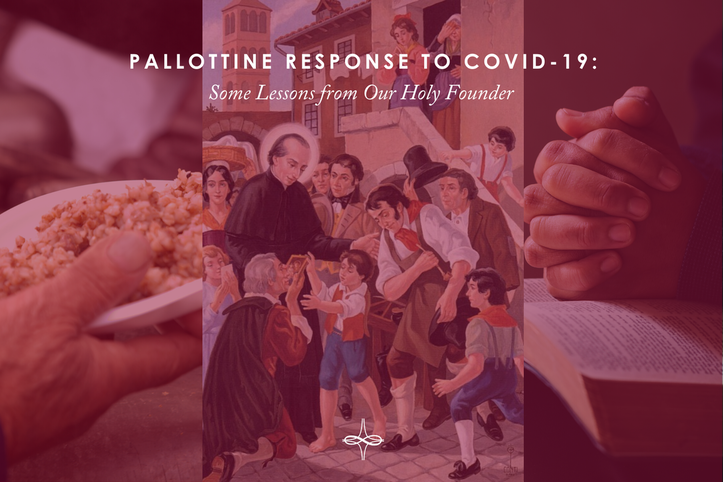
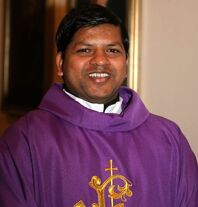
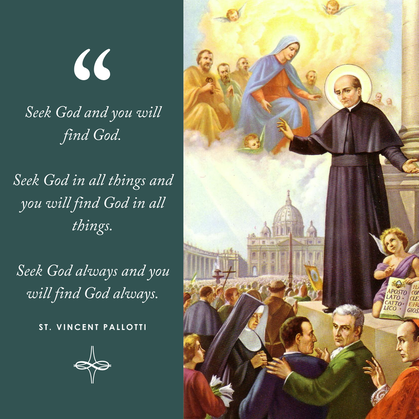
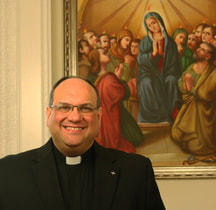
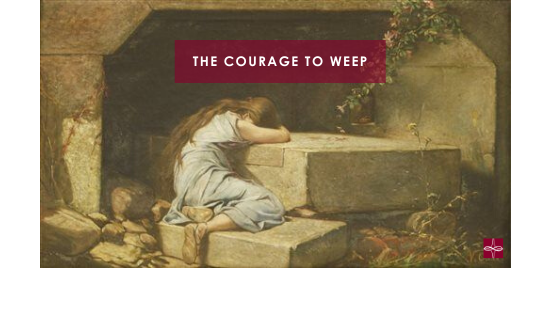

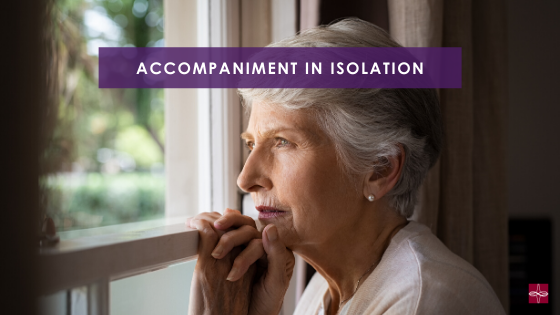




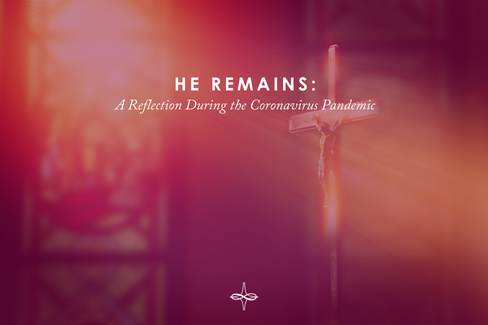

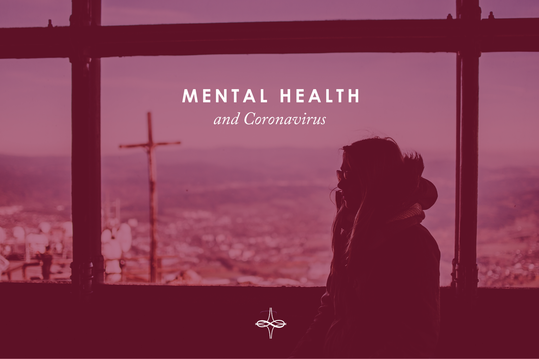

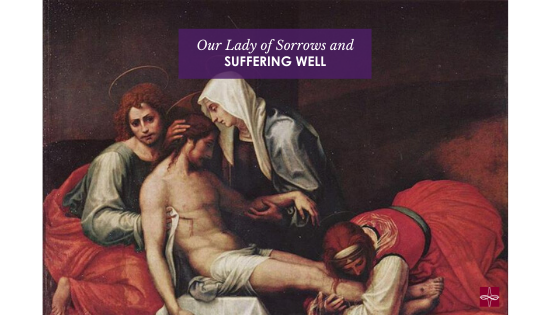

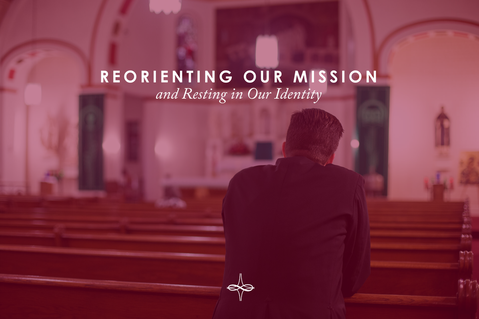
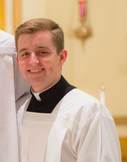
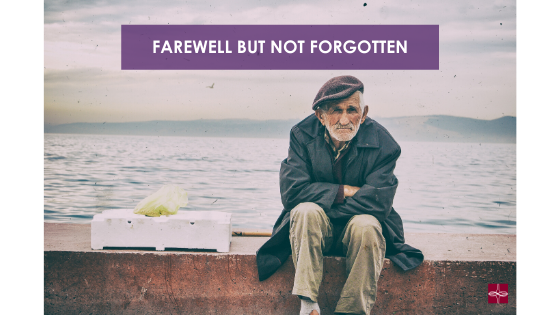
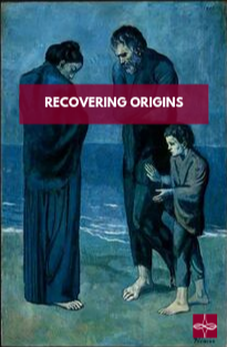

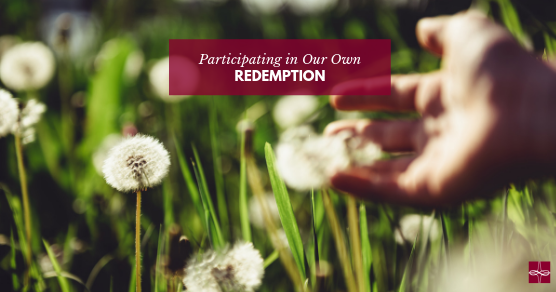

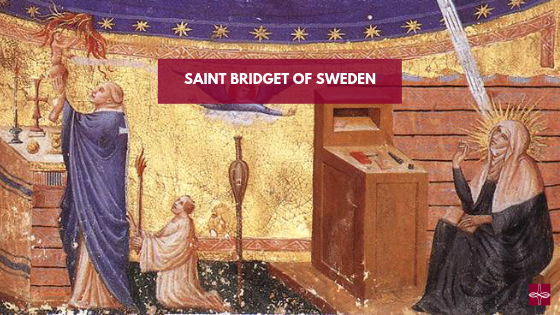

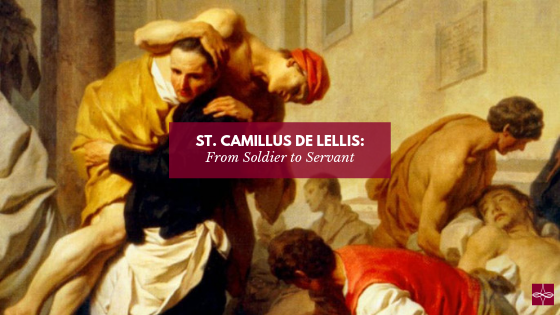

 RSS Feed
RSS Feed